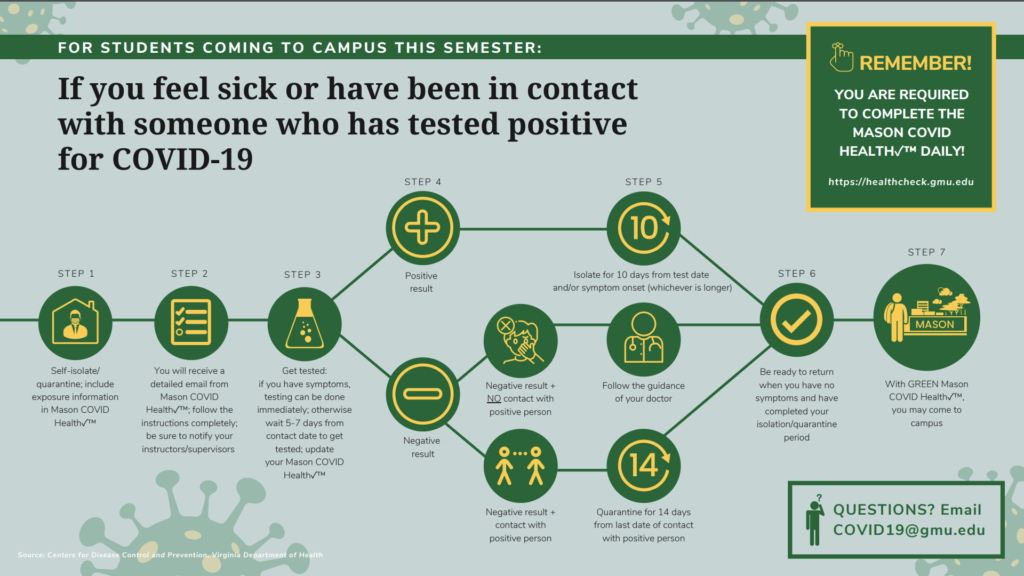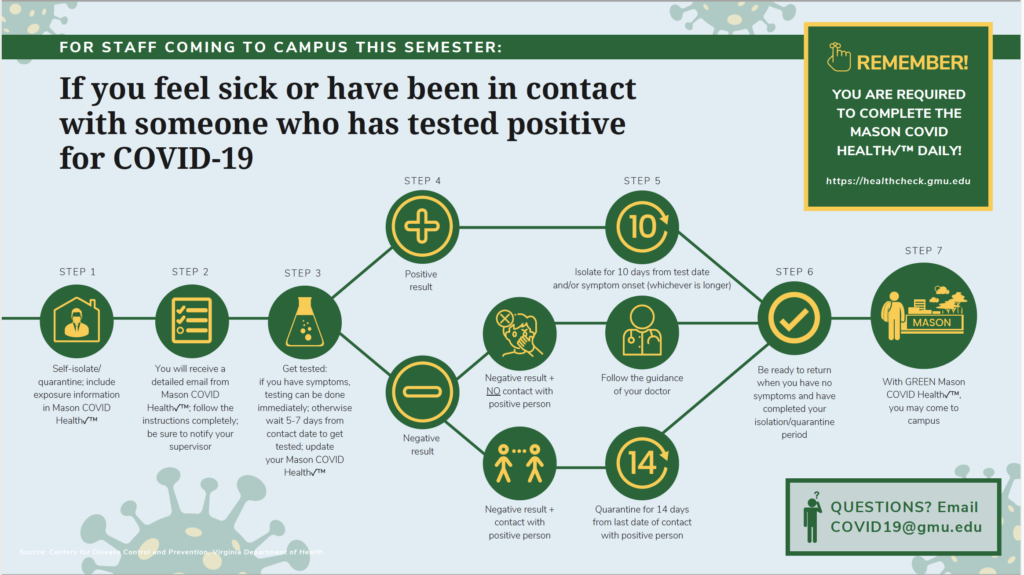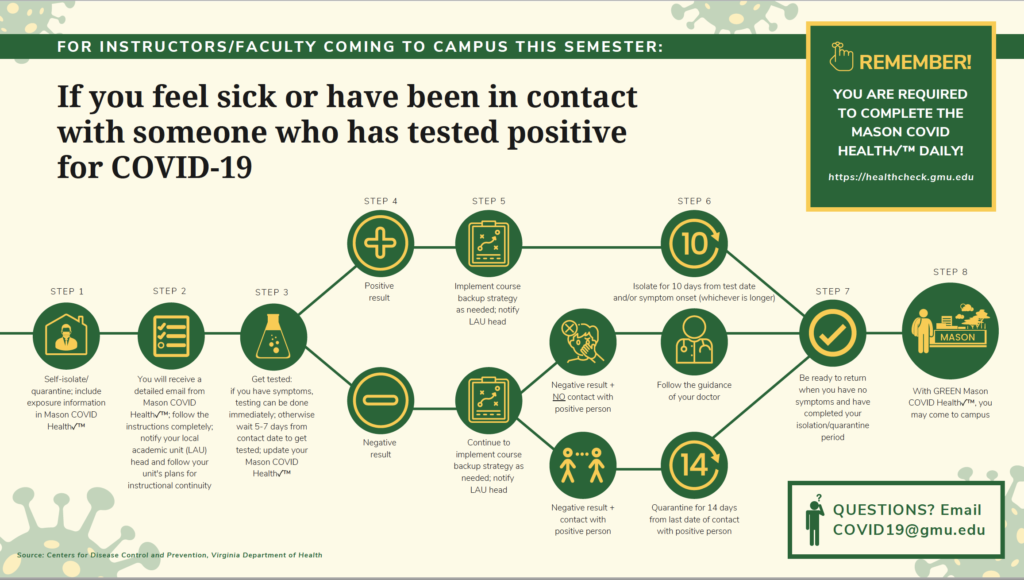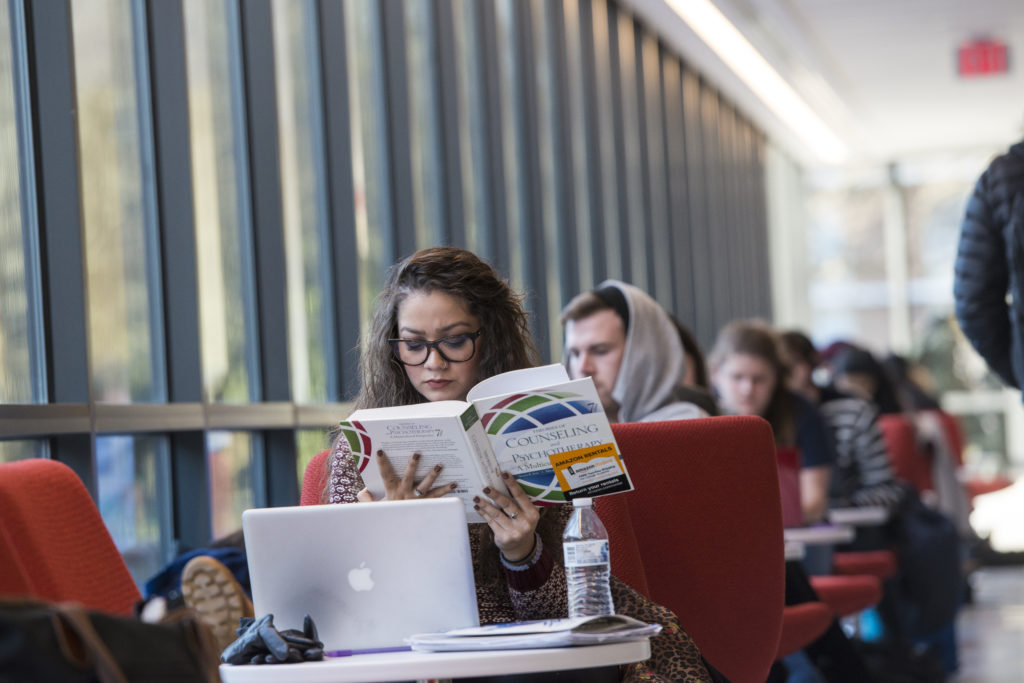In conjunction with Mason’s COVID Outbreak Mitigation and Management Team as well as Safety, Emergency, & Enterprise Risk Management, the Instructional Continuity Working Group has created three charts outlining COVID-19 guidance for faculty, staff, and students who are coming to campus this semester. The charts provide step-by-step instructions on what to do should individuals feel sick or come in contact with someone who has tested positive for COVID-19. To download and print all three charts, click here. If you have questions about the guidance, send an email to [email protected].





